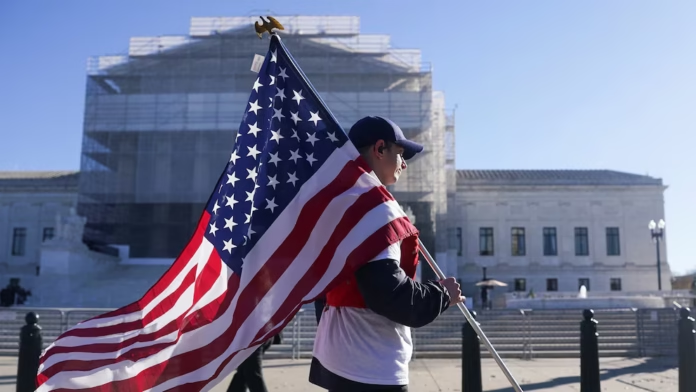The Supreme Court is reviewing the legality of Trump’s IEEPA tariffs after small businesses challenged the president’s authority under emergency powers. The case, consolidated as Learning Resources v. Trump and Trump v. V.O.S. Selections, involves tens of billions of dollars in collected tariffs.
Therefore, under the International Emergency Economic Powers Act, the Trump administration imposed tariffs on numerous imports. The stated goal was to protect U.S. national security and reshape trade relationships. Critics argue the tariffs exceed presidential authority and raise prices for consumers.
Moreover, federal lower courts ruled that the administration overstepped its powers, prompting the White House to appeal. Supporters insist the tariffs are necessary to counter unfair trade practices and encourage domestic manufacturing.
Therefore, the Tax Foundation estimates that these tariffs generated more than $88 billion in revenue this year. If maintained, they could collect nearly $1.8 trillion from 2025 to 2034. Economists predict a 0.4% GDP reduction and the loss of roughly 428,000 jobs. Households could pay an average of $1,000 more this year and $1,300 in following years due to higher import costs.
Furthermore, economists also warn that the tariffs contribute to inflation and create investment uncertainty. Dr. Wayne Winegarden of the Pacific Research Institute said the tariffs “usurp Congress’s taxation powers” and could set a precedent for future presidential overreach.
Businesses are preparing for multiple outcomes depending on the Supreme Court decision. If the tariffs are ruled unlawful, companies may face a complex process to claim refunds, potentially totaling over $108 billion by the end of October.
Trump administration officials argue the tariffs are necessary to balance international trade, protect national security, and encourage reshoring of manufacturing jobs. The Supreme Court’s decision, expected within weeks, could affect federal revenue and long-term trade policy.
U.S. businesses are reviewing customs records and planning internal processes to respond quickly once a ruling is issued. The case underscores the tension between executive emergency powers and congressional authority over trade and taxation.


